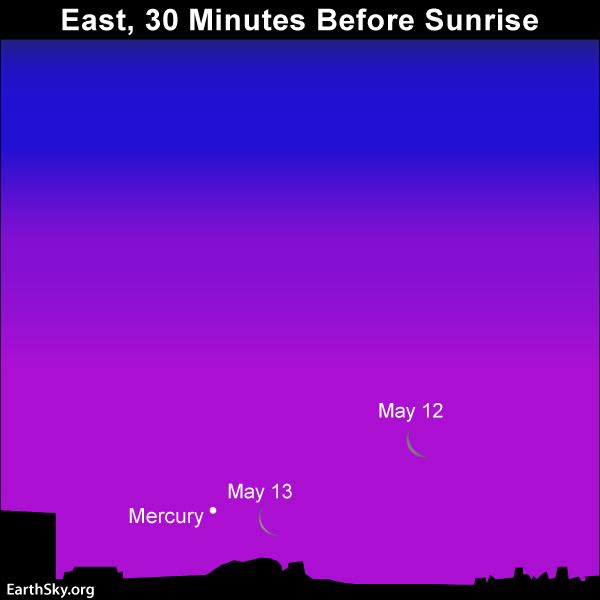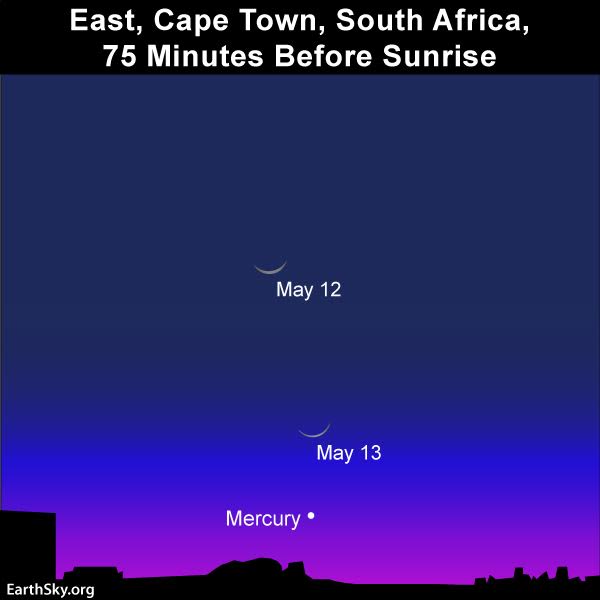People in the Southern Hemisphere have the big advantage for catching the crescent moon and the planet Mercury in the eastern sky before sunrise on May 12 and 13, 2018. In fact, our featured chart at top is for Cape Town, South Africa (roughly the same latitude as Sydney, Australia; Auckland, New Zealand; Santiago, Chile). Given an unobstructed horizon and clear sky, the old waning crescent moon and planet Mercury will be easy to spot in the Southern Hemisphere (and the northern tropics) with the eye alone.
For the Southern Hemisphere, this morning apparition of Mercury is the best of 2018.
In mid-northern latitudes (U.S., Canada, Europe and Asia), the moon and Mercury will be much, much harder to spot in the glow of morning dawn. For us in the Northern Hemisphere, this is the poorest morning apparition of Mercury for the year – Mercury rises less than one hour before the sun. The chart below well illustrates our dim prospects at northerly latitudes.

The Southern Hemisphere has another week or so of good viewing, with Mercury brightening by the day. Although you need a telescope to see Mercury’s waxing phase, its increasing phase actually makes it appear brighter to the eye.
No matter where you live worldwide, it’s to your advantage to find an unobstructed horizon in the direction of sunrise for any Mercury quest. Before sunrise on May 12, the lighted portion of the waning crescent moon will be pointing toward Mercury. On May 13, the moon will be closer to Mercury.
Just remember … binoculars come in handy for any Mercury search.
Read more: May guide to the bright planets
Bottom line: On May 12 and 13, 2018, look for the waning crescent moon and Mercury, the innermost planet of the solar system, in the eastern sky before sunrise.












